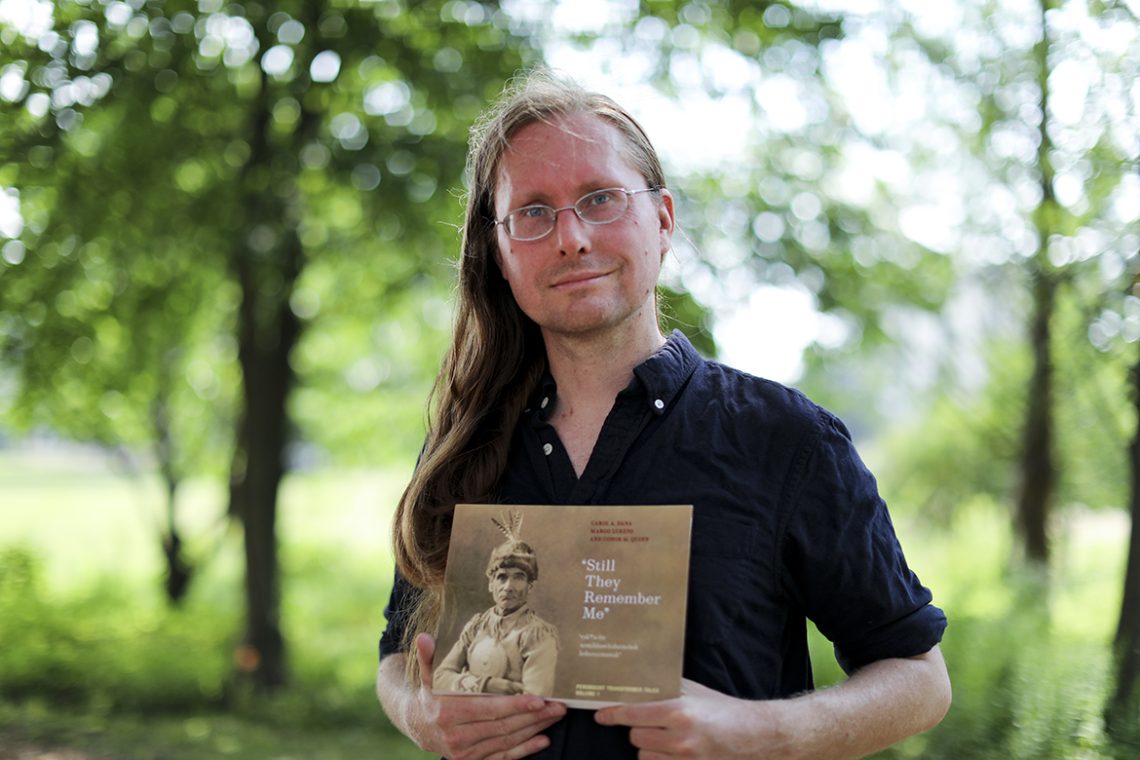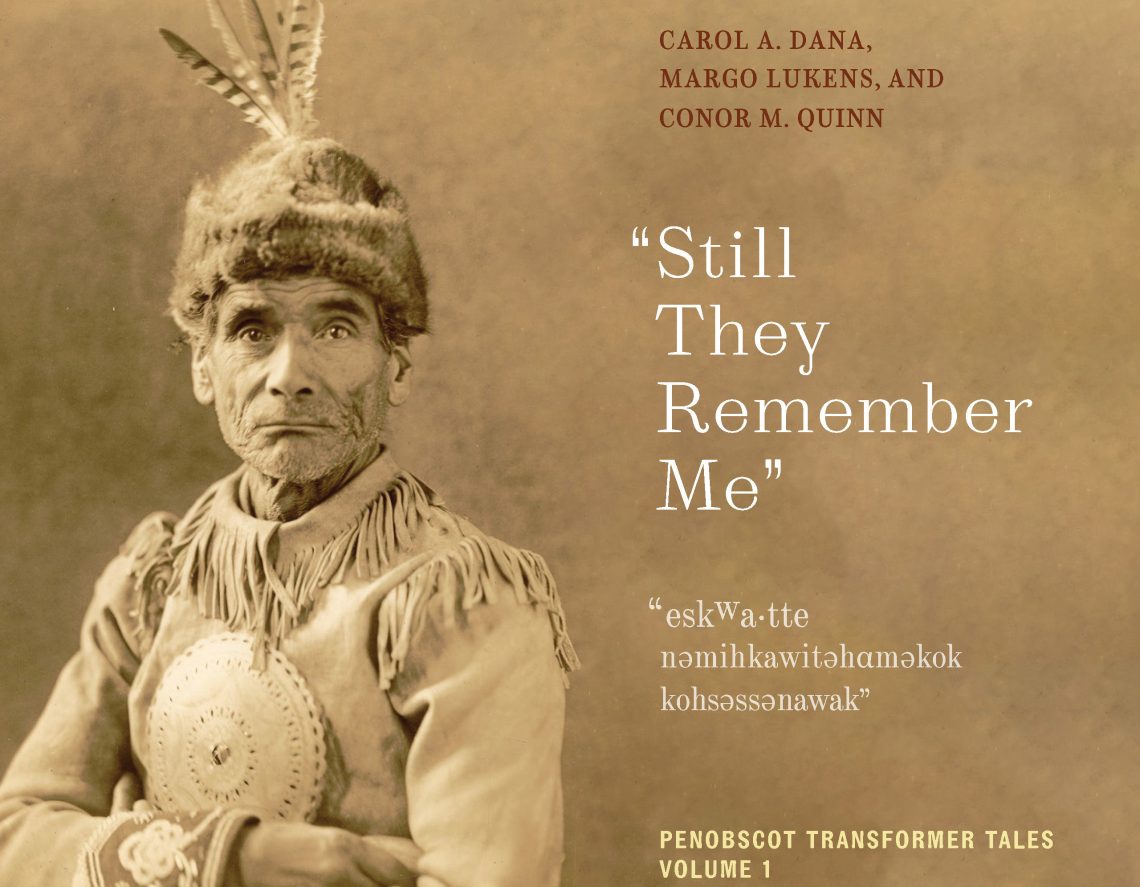For more than 100 years, Penobscot parents read their children the tribal community’s most beloved folk tales from old photocopied sheets of paper. The text was dense. There were no illustrations. The stories were written in both English and Penobscot, but Penobscot words were represented by difficult-to-decipher phonetic symbols common to linguists in 1918.
“It was not particularly accessible,” said Dr. Conor Quinn, part-time faculty member in Linguistics.
That’s all about to change.

Dr. Conor Quinn, part-time faculty member in Linguistics at USM and co-author of the book “Still They Remember Me: Penobscot Transfomer Tales Vol. 1.”
Quinn, University of Maine English Professor Margo Lukens, and Language Master for the Penobscot Historical Preservation Department Carol Dana have turned those photocopied sheets into a full children’s book, complete with illustrations and transcribed for the first time into modern Penobscot with an English translation.
Published in June by the University of Massachusetts Press, “Still They Remember Me: Penobscot Transfomer Tales Vol. 1,” is available now.
“For me, it means a lot. I love the stories,” Dana said.
The stories feature Gluskabe, a Penobscot cultural hero and teacher whose tales about the natural world express traditional Penobscot values to kids. “Still They Remember Me” includes 13 stories that focus on Gluskabe’s coming of age.
The stories have been recited for generations but weren’t written down until 1918, when Penobscot member Newell Lyon and anthropologist Frank Speck partnered to create a 40-page paper filled with traditional Penobscot tales translated into both English and phonetic Penobscot. It was published in the International Journal of American Linguistics, and for the next century photocopies were the only way community members had to share the stories in writing.
Then, in 2016, Dana and Lukens were presenting some Gluskabe stories as part of a children’s play when Dana realized they really needed to reprint the stories in a better form.
“I didn’t completely understand the importance of the re-publication at the beginning. I wasn’t sure,” Lukens said. “But Carol really has kept us focusing on one primary, central audience, which is young people from Penobscot Nation who may be growing up in English and who, through this book of stories, could find their way back to traditional Penobscot language.”
Dana and Lukens asked Quinn, a linguist with extensive experience with the Penobscot language, to co-author the book with them. They found a publisher in the University of Massachusetts Press and then spent the next five years — more than a year of that during the pandemic — recreating the stories in both English and Penobscot.
“People were aware of the stories, but not as much as they will be once it comes out in book form,” Dana said. “It’s just really meaningful.”
The book includes stories about Gluskabe’s childhood with his grandmother, his overenthusiastic attempts to solve problems as a youth, and challenges he faced trying to help his people. One of Quinn’s favorite stories involves Uugulubemo, a frog monster who sits at the top of the river and drinks all the water, making the rest of the world perish from thirst. It’s a very old tale with modern lessons.
“It has a lot of different meanings, particularly in this day and age when people are really concerned about water and water resources and basically who’s hogging it or who’s poisoning it or who’s making it impossible for people to have their straightforward access to healthy water,” Quinn said. “All of that is kind of bound up in that story.”
Most of the book’s illustrations were created by Penobscot artist Shannon Sockalexis, with additional illustrations by Penobscot member Joshua Woodbury and another by Martha Piscuskas. A map in the book was illustrated by Margaret Pearce, a member of the Potawatomi community.
The book also includes a pronunciation guide for Penobscot words, with an emphasis on the language’s rhythm and melody.
While this is the first Gluskabe book translated into both modern Penobscot and English, it won’t be the last. Quinn, Dana and Lukens are working on volume two, which will feature 16 more stories.
Quinn is also working on a Penobscot language dictionary with several others, including Dana and other members of the Penobscot Nation.
“But I’m really happy that this is the first book to come out. A dictionary is very good, but stories are how the language comes to life,” Quinn said.
The trio received multiple private and public grants to write and publish “Still They Remember Me.” Some of that funding will be used to provide a copy of the book to every Penobscot household.
The book’s first printing — 1,000 copies — sold out within two weeks of its release, largely due to pre-orders. UMass Press has ordered a second printing of 2,000 copies.
The books are available online and in bookstores throughout Maine.


